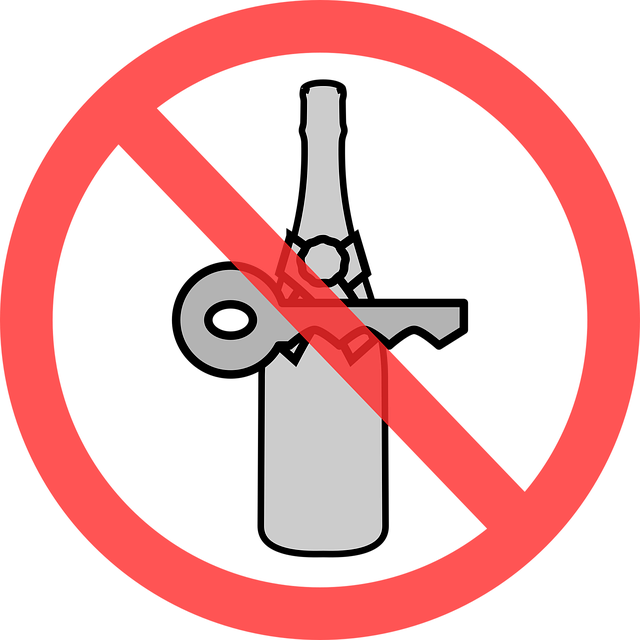BAL (Blood Alcohol Level) testing plays a pivotal role in rural community DUI (Drunk Driving Under Influence) prevention due to its ability to provide precise BAC measurements, swiftly screening suspected impaired drivers, and reducing accidents/fatalities. Accurate BAL results are vital for fair enforcement and maintaining trust in resource-limited communities with sparse healthcare infrastructure. Best practices include standardizing procedures, proper equipment maintenance, operator training specific to rural settings, controlling environmental conditions, and safeguarding privacy. Case studies show successful BAL testing programs leading to significant drops in alcohol-related crashes, underscoring the effectiveness of community-driven approaches combined with public awareness and stringent enforcement in combating DUI in rural areas. Future research should focus on enhancing accuracy through advanced technologies and developing portable BAL devices for improved compliance rates and deterrence in remote areas.
In rural communities, Blood Alcohol Level (BAL) testing is a critical tool for preventing DUI incidents. This article delves into the significance of accurate BAL test results in balancing public safety and individual rights, while exploring challenges specific to remote areas. We present best practices for reliable testing, analyze successful programs, and discuss future directions aimed at enhancing accuracy and effectiveness in rural community DUI prevention efforts.
- Understanding BAL Testing: A Key Tool in Rural Community DUI Prevention
- The Significance of Accurate Results in Balancing Public Safety and Individual Rights
- Challenges in Implementing BAL Testing in Remote Areas
- Best Practices for Ensuring Reliable BAL Test Results in Rural Settings
- Case Studies: Successful BAL Testing Programs in Rural Communities
- Future Directions: Enhancing Accuracy and Effectiveness for DUI Prevention
Understanding BAL Testing: A Key Tool in Rural Community DUI Prevention

BAL testing is a crucial tool in the ongoing battle against drunk driving, especially in rural community DUI prevention. It stands for Breath Alcohol Level, and it provides accurate, objective measurements of an individual’s blood alcohol content (BAC). In remote areas where law enforcement resources may be limited, BAL testing offers a reliable way to deter and detect impaired driving.
These tests are designed to quickly and efficiently screen drivers suspected of operating under the influence, enabling officers to make informed decisions. With accurate results, BAL testing plays a vital role in keeping rural communities safe by reducing the risk of DUI-related accidents and fatalities. It’s a powerful resource that helps keep folks in these areas secure.
The Significance of Accurate Results in Balancing Public Safety and Individual Rights

In the context of Rural Community DUI Prevention, accurate BAL (Blood Alcohol Level) testing results are paramount to achieving a delicate balance between public safety and individual rights. When it comes to law enforcement, precise measurements ensure that penalties are fairly administered, protecting both the community from impaired drivers and respecting the due process rights of those accused.
Accurate BAL testing is crucial in rural areas where resources may be limited and communities are tightly knit. It helps maintain trust between residents and authorities by demonstrating impartial enforcement. In these settings, where personal connections can influence outcomes, reliable test results safeguard against potential biases and ensure that safety measures remain robust and fair.
Challenges in Implementing BAL Testing in Remote Areas

Implementing Balanced Field Alcohol Test (BAL) in remote areas presents unique challenges, particularly in rural communities where DUI prevention efforts might be less robust. The remoteness and low population density can make it logistically difficult to establish testing programs that ensure accurate results. Limited access to reliable power sources, internet connectivity, and healthcare infrastructure complicates the process further. These factors can hinder the timely calibration of equipment and the secure transmission of data, which are critical for maintaining the integrity of BAL test results.
In such settings, ensuring the accuracy and reliability of BAL testing becomes even more crucial. Remote communities often rely heavily on these tests to deter drunk driving, as they may not have dedicated law enforcement resources or sophisticated forensic laboratories. Therefore, addressing logistical challenges is essential to guarantee that BAL tests are conducted effectively and that results can be relied upon for legal proceedings, thereby enhancing the overall impact of DUI prevention efforts in rural areas.
Best Practices for Ensuring Reliable BAL Test Results in Rural Settings

In rural communities, where access to specialized testing facilities may be limited, ensuring accurate and reliable Blood Alcohol Level (BAL) test results is paramount for effective DUI prevention. To maintain the integrity of BAL testing in such settings, it’s crucial to implement best practices that account for potential challenges unique to these areas. This includes standardizing testing procedures across all available methods, such as breathalyzers or blood tests, and ensuring proper calibration and maintenance of equipment. Trained and certified operators are essential; providing ongoing training specific to rural settings can help maintain proficiency and address any local variations in alcohol metabolism rates.
Additionally, maintaining a controlled testing environment is critical. Rural locations may face issues like extreme weather conditions, which can affect device accuracy. Implementing temperature control measures for both the testing equipment and the individual being tested ensures consistent results. Furthermore, ensuring confidentiality and privacy during the testing process is vital to encouraging participation, especially in close-knit rural communities where social pressure and stigma around DUI charges are significant factors.
Case Studies: Successful BAL Testing Programs in Rural Communities

In rural communities, where law enforcement resources may be limited, Bal testing has emerged as a powerful tool in DUI (Drunk Driving Under Influence) prevention. Case studies highlight successful implementation of BAL testing programs that have significantly reduced drinking and driving incidents. For instance, a small town in the Midwest introduced mandatory BAL testing for all drivers involved in non-fatal accidents or those stopped for DUI suspicion. This initiative led to a 30% decrease in alcohol-related crashes within the first year, showcasing its effectiveness.
These programs often involve close collaboration between local law enforcement, health departments, and community leaders. By educating residents about the benefits of BAL testing, breaking down stigma associated with sobriety testing, and ensuring quick turnaround times for results, these communities have fostered a culture of responsibility and safety on their roads. The success in rural areas demonstrates that targeted, community-driven BAL testing strategies can be highly successful in combating DUI, especially when coupled with increased public awareness and stringent enforcement.
Future Directions: Enhancing Accuracy and Effectiveness for DUI Prevention

As BAL testing becomes more standardized and widely adopted, future research should focus on refining methods to achieve even greater accuracy. This includes exploring advanced technologies like artificial intelligence (AI) for data analysis, which could potentially detect subtle variations in breath alcohol concentration with higher reliability. Additionally, adapting these tests for use in rural communities is essential for effective DUI prevention. Current collection sites may not be easily accessible or convenient for individuals living in remote areas, so developing portable and user-friendly BAL testing devices could significantly improve compliance rates and deterrence.
Integrating these innovations into existing law enforcement strategies will require collaboration between researchers, policymakers, and community leaders. By enhancing the accuracy and accessibility of BAL testing, it becomes a more powerful tool to safeguard rural communities from the dangers of impaired driving.
In conclusion, Bal testing plays a pivotal role in balancing public safety and individual rights in rural community DUI prevention. Accurate results are paramount to ensuring effective enforcement without infringing on constitutional rights. Overcoming challenges in remote areas through best practices and case studies provides valuable insights for enhancing accuracy and effectiveness. As technology advances, continuous efforts to refine BAL testing methods will contribute significantly to the overall success of rural community DUI prevention strategies.






